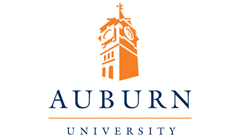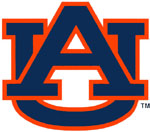
by
Andrew Sims/Online Editor
What’s that buzzing sound? No it’s not an old cell phone.
It’s the sound of new ideas being generated by the people at AU Recycling as they expand their electronic waste recycling program.
“Right now we give all of our collected, unseparated recyclables to a company called Creative Recycling,” said Donnie Addison, coordinator of recycling and waste management reduction. “Right now we pick up old computers, televisions, cell phones, batteries of all types and really anything that plugs into the wall from different departments around campus.”
AU Recycling is a relatively new program and is still working on getting itself established.
“Right now we just don’t have any specific drop off points for people to throw stuff out, all of our stuff is taken up by request from the different buildings on campus,” Addison said.
The program currently does not have any type of student program actively operating.
“We are just really not ready to take that onto our already full plate right now,” Addison said. “Right now we have a lot of other big projects we are taking on, but in the next few years I am really pushing to have community drop offs in some of the bigger buildings like Haley, the student center and the new dorm’s mail rooms.”
Because of the economy it has proven hard for AU Recycling to get any new initiatives going.
“We are having a hard time expanding right now because of the economic situation,” Addison said. “A lot of recycling centers shut down because the manufactures who use these materials for production are not producing as much,.”
Despite AU Recycling trying to stay small for the time being, Addison said they are keeping their education and community outreach solid.

“We all are always more than happy to tell a group about recycling and the values of it,” Addison said.
Kay Stone, outreach program administrator for the Auburn University Environmental Institute, agrees that education is a vital part to this whole process.
“A lot of electronics contain hazardous materials that can then leach into groundwater,” Stone said. “Knowing about these metals is very important for people to know.”
Addison said that even the state lacks an understanding of the increasing problem electronic waste presents.
“Right now in this state we do not properly regulate electronic waste,” Addison said. “We, as a state, have an obligation to dispose of these materials properly.”
Alex Tigue, a junior in agricultural sciences, said he could not agree more with the concerns around the disposal of these harmful materials.
“The attitude around here feels as though it’s not our problem, somebody else will fix it,” Tigue said, “It’s just nice to see that Auburn, a school who has relied on the earth to make it’s name, caring enough to do something about the problem.”
 by Andrew Sims/Online Editor
What’s that buzzing sound? No it’s not an old cell phone.
It’s the sound of new ideas being generated by the people at AU Recycling as they expand their electronic waste recycling program.
“Right now we give all of our collected, unseparated recyclables to a company called Creative Recycling,” said Donnie Addison, coordinator of recycling and waste management reduction. “Right now we pick up old computers, televisions, cell phones, batteries of all types and really anything that plugs into the wall from different departments around campus.”
AU Recycling is a relatively new program and is still working on getting itself established.
“Right now we just don’t have any specific drop off points for people to throw stuff out, all of our stuff is taken up by request from the different buildings on campus,” Addison said.
The program currently does not have any type of student program actively operating.
“We are just really not ready to take that onto our already full plate right now,” Addison said. “Right now we have a lot of other big projects we are taking on, but in the next few years I am really pushing to have community drop offs in some of the bigger buildings like Haley, the student center and the new dorm’s mail rooms.”
Because of the economy it has proven hard for AU Recycling to get any new initiatives going.
“We are having a hard time expanding right now because of the economic situation,” Addison said. “A lot of recycling centers shut down because the manufactures who use these materials for production are not producing as much,.”
Despite AU Recycling trying to stay small for the time being, Addison said they are keeping their education and community outreach solid.
by Andrew Sims/Online Editor
What’s that buzzing sound? No it’s not an old cell phone.
It’s the sound of new ideas being generated by the people at AU Recycling as they expand their electronic waste recycling program.
“Right now we give all of our collected, unseparated recyclables to a company called Creative Recycling,” said Donnie Addison, coordinator of recycling and waste management reduction. “Right now we pick up old computers, televisions, cell phones, batteries of all types and really anything that plugs into the wall from different departments around campus.”
AU Recycling is a relatively new program and is still working on getting itself established.
“Right now we just don’t have any specific drop off points for people to throw stuff out, all of our stuff is taken up by request from the different buildings on campus,” Addison said.
The program currently does not have any type of student program actively operating.
“We are just really not ready to take that onto our already full plate right now,” Addison said. “Right now we have a lot of other big projects we are taking on, but in the next few years I am really pushing to have community drop offs in some of the bigger buildings like Haley, the student center and the new dorm’s mail rooms.”
Because of the economy it has proven hard for AU Recycling to get any new initiatives going.
“We are having a hard time expanding right now because of the economic situation,” Addison said. “A lot of recycling centers shut down because the manufactures who use these materials for production are not producing as much,.”
Despite AU Recycling trying to stay small for the time being, Addison said they are keeping their education and community outreach solid. “We all are always more than happy to tell a group about recycling and the values of it,” Addison said.
Kay Stone, outreach program administrator for the Auburn University Environmental Institute, agrees that education is a vital part to this whole process.
“A lot of electronics contain hazardous materials that can then leach into groundwater,” Stone said. “Knowing about these metals is very important for people to know.”
Addison said that even the state lacks an understanding of the increasing problem electronic waste presents.
“Right now in this state we do not properly regulate electronic waste,” Addison said. “We, as a state, have an obligation to dispose of these materials properly.”
Alex Tigue, a junior in agricultural sciences, said he could not agree more with the concerns around the disposal of these harmful materials.
“The attitude around here feels as though it’s not our problem, somebody else will fix it,” Tigue said, “It’s just nice to see that Auburn, a school who has relied on the earth to make it’s name, caring enough to do something about the problem.”
“We all are always more than happy to tell a group about recycling and the values of it,” Addison said.
Kay Stone, outreach program administrator for the Auburn University Environmental Institute, agrees that education is a vital part to this whole process.
“A lot of electronics contain hazardous materials that can then leach into groundwater,” Stone said. “Knowing about these metals is very important for people to know.”
Addison said that even the state lacks an understanding of the increasing problem electronic waste presents.
“Right now in this state we do not properly regulate electronic waste,” Addison said. “We, as a state, have an obligation to dispose of these materials properly.”
Alex Tigue, a junior in agricultural sciences, said he could not agree more with the concerns around the disposal of these harmful materials.
“The attitude around here feels as though it’s not our problem, somebody else will fix it,” Tigue said, “It’s just nice to see that Auburn, a school who has relied on the earth to make it’s name, caring enough to do something about the problem.”